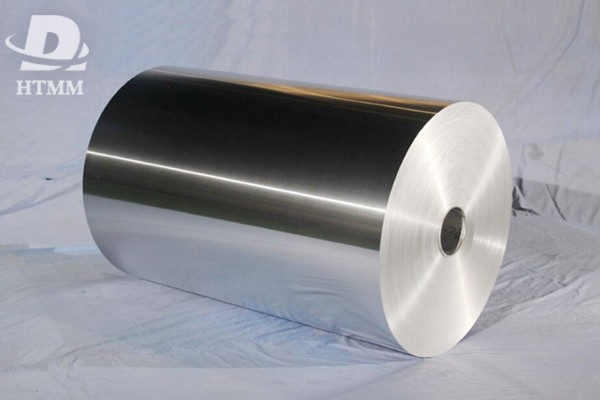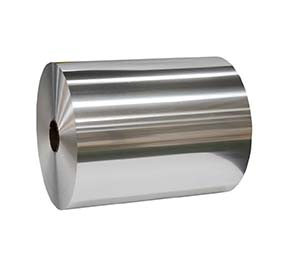Tip 1: Select an Appropriate Storage Location:
Consider a calm, dry haven where aluminum foil jumbo rolls can rest peacefully, protected from the harsh elements that could destroy their integrity. This type of environment not only increases their longevity but also improves their general performance. Extreme temperatures and humidity variations that could produce condensation should be avoided in the optimal storage environment. It should be a spot where sunlight does not dare to enter, as extended exposure might degrade the quality of the foil. Consider the pantry, a cupboard, or a dedicated shelf in your storage room when choosing a storage location - places that provide the ideal balance of darkness, controlled temperature, and dryness. Your storage space should be easily accessible so that getting a roll is a simple task.Keep rolls in their original packaging:
Aluminum foil jumbo roll packaging is like to a suit of armor, shielding these critical rolls from various perils lurking in their surroundings. It provides an impenetrable barrier against dust, moisture, and even slight physical damage. By storing the rolls in their original packaging, you protect them from pollutants that could damage their beautiful surface.The packaging is precisely constructed to maintain the flexibility of the foil, making it easier to handle and mold for a variety of purposes. This extra versatility is especially important when using aluminum foil for cooking or wrapping delicate things. When dealing with opened rolls, try to reseal them in their original packaging or use an airtight alternative to keep the foil as fresh as the day it was unrolled.3rd Tip: Avoid Contamination and Cross-Contamination:
 The necessity of maintaining a clean, uncontaminated surface cannot be stressed for individuals who use aluminum foil for culinary endeavors. Food-grade aluminum foil necessitates meticulous hygiene. Protect the rolls from grease splatters, dampness, and other potential pollutants. By keeping the rolls away from such sources, you protect their surface and ensure that they are safe for food-related uses. A clean, uncontaminated aluminum foil contributes to the safety and quality of your culinary creations by avoiding undesirable flavors or odors from permeating your food.
The necessity of maintaining a clean, uncontaminated surface cannot be stressed for individuals who use aluminum foil for culinary endeavors. Food-grade aluminum foil necessitates meticulous hygiene. Protect the rolls from grease splatters, dampness, and other potential pollutants. By keeping the rolls away from such sources, you protect their surface and ensure that they are safe for food-related uses. A clean, uncontaminated aluminum foil contributes to the safety and quality of your culinary creations by avoiding undesirable flavors or odors from permeating your food.Shielding Against Culinary Impurities: Imagine a safe haven for your aluminum foil giant rolls, free of the various contaminants that lurk in the nooks and crannies of your kitchen. It's a world free of grease splatters, dampness that clings to culinary endeavors, and faint remnants of aromatic items that could mistakenly contaminate your foil. By storing your rolls in areas where these possible hazards are not present, you create a barrier between your aluminum foil and any impurities that could affect its surface.
Improving Safety and Quality: The preservation of clean, uncontaminated aluminum foil is no small task. It has a direct impact on the safety, quality, and integrity of the dishes you laboriously prepare. Your culinary creations deserve to be born in a pure purity environment, where every component - even the aluminum foil - contributes favorably to the end outcome. By not contaminating your aluminum foil, you ensure that your culinary attempts are devoid of unwelcome flavors or odors that could infiltrate and detract from the sensory symphony you're creating.
A Protection Against Unwanted Infiltration:
Consider the protecting function of your aluminum foil. It's more than just a container for wrapping and concealing; it's a sentinel defending your meals against the covert incursion of unsavory entities. In the face of culinary obstacles, your aluminum foil should be a fortress, sturdy and unyielding. By following the preventive principle, you efficiently protect your aluminum foil from contamination and cross-contamination, guaranteeing that the flavors and essences of your foods remain pure and undamaged.4th Tip: Use Proper Handling Techniques:
Consider cradling a delicate work of art; use the same care when handling aluminum foil jumbo rolls. Gentle handling is not simply a nicety; it is required to avoid dents, creases, and tears that could jeopardize the foil's functionality. When storing a new roll or retrieving an old one, use caution to avoid injuring the foil's fragile layers. When handling the rolls, avoid sharp items or rough surfaces that could puncture or scrape the packing. By using suitable handling practices, you can ensure that the aluminum foil remains clean and ready to serve its purpose anytime you need it.Following the first-in-first-out (FIFO) rotation is the sixth item of advice:
The idea of First-In-First-Out (FIFO) is a tactical strategy for controlling your aluminum foil inventory. Consuming older rolls first maintains a consistent turnover and prevents rolls from remaining in storage for long periods of time. It's as simple as identifying your rolls by purchase or production dates and properly organizing them to complete FIFO rotation. This method maintains your aluminum foil fresh, effective, and efficient, lowering the likelihood of unused rolls stacking up and boosting the value of your investment.
Considerations for Specialty Storage: The various properties of aluminum foil should be addressed in your storage strategy. Heavy-duty, regular, and nonstick versions may require different storage conditions to maintain their distinct properties. Furthermore, if you work in an industrial setting or run a retail establishment, you may be confronted with particular challenges such as bulk storage and accessibility. By tailoring your storage approach to these specific conditions, you can use aluminum foil in a culinary, industrial, or retail scenario.
Conclusion: Keeping big rolls of aluminum foil is a bad practice that affects the quality, lifespan, and effectiveness of this precious material. Aluminum foil jumbo rolls can be maximized by choosing the optimal storage location, preserving rolls in their original packaging, limiting contamination, following proper handling procedures, and completing FIFO rotation. Following these important storage recommendations not only preserves your investment, but also assures the easy and successful execution of your activities, whether culinary, practical, or creative.

.jpg)



